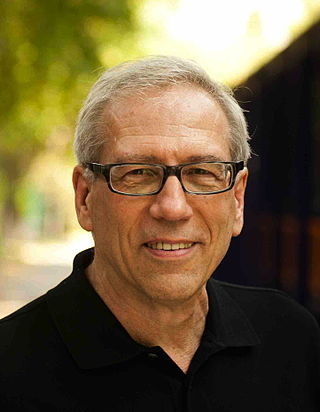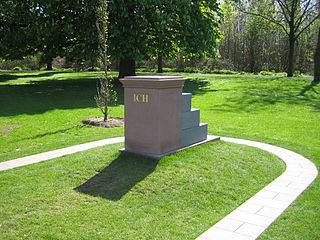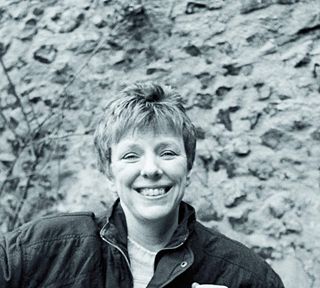
Manuel Andrack is a German journalist, television presenter, and author. He is best known as the sidekick of the Harald Schmidt Show.

Katja Lange-Müller is a German writer living in Berlin. Her works include several short stories and novellas, radio dramas, and dramatic works.

Alice Sophie Schwarzer is a German journalist and prominent feminist. She is founder and publisher of the German feminist journal EMMA. Beginning in France, she became a forerunner of feminist positions against anti-abortion laws, for economic self-sufficiency for women, against pornography, prostitution, female genital mutilation, and for a fair position of women in Islam. She authored many books, including biographies of Romy Schneider, Marion Dönhoff and herself.

Bastian Sick is a German journalist and author.

Martin Hans Sonneborn is a German politician and Member of the European Parliament (MEP). He is a founder and federal chairman of Die PARTEI. He was editor-in-chief of the satirical magazine Titanic from 2000 to 2005 and works for Spiegel Online and ZDF.
Der Dativ ist dem Genitiv sein Tod is a series of books by Bastian Sick which deal in an entertaining manner with unappealing or clumsy use of the German language, as well as areas of contention in grammar, orthography, and punctuation.

Thomas Hettche is a German author.
The value judgment controversy (German:Werturteilsstreit) is a Methodenstreit, a quarrel in German sociology and economics, around the question whether the social sciences are a normative obligatory statement in politics and its measures applied in political actions, and whether their measures can be justified scientifically.

Kiepenheuer & Witsch is a German publishing house, established in 1948 by Joseph C. Witsch and on behalf of Gustav Kiepenheuer. The partners initially held respectively 30% and 40% of the company's share capital. Kiepenheuer died in 1949, after which Witsch took over control and broke the original link with the existing Gustav Kiepenheuer Verlag in Weimar. For the Kiepenheuer & Witsch publishing business several years of major organisational restructuring followed. The first books to be published under the Kiepenheuer & Witsch imprint was the novel Marion by Vicki Baum, which appeared in 1951. In 1953 the firm acquired a new head office incorporating, for the first time, its own onsite publishing facilities, at Cologne-Marienburg.

Friedrich Sieburg (1893–1964) was a German journalist. He was born in Altena and died in Gärtringen.

Adriana Altaras is a German actress, theatre director and author.

Hans Weiss is an Austrian writer, journalist and photographer

Volker Hauff is a German politician of the Social Democratic Party (SPD).

Gerhard Zwerenz was a German writer and politician. From 1994 until 1998 he was a member of the Bundestag for the Party of Democratic Socialism (PDS).

Pop journalism is a form of journalism, that appeared under the influence of the American New Journalism in the mid-60s in Germany and coined the writing right down to the literature. This was most evident in Jörg Fauser’s writing.

Klaus Modick is a German author and literary translator.
Franz Herre is a German biographer, historian and journalist.

Eva-Ruth Weissweiler is a German writer, musicologist and non fiction writer.
Irina Liebmann is a German journalist-author and sinologist of Russo-German provenance. She has won a number of important literary prizes: the most significant of these, probably, was the 2008 Leipzig Book Fair non-fiction Prize, awarded for "Wäre es schön? Es wäre schön!", a biography of her father, a noted anti-Nazi activist and political exile in Warsaw and Moscow who, after 1945, returned to what became, in 1949, the German Democratic Republic and in 1953, despite his longstanding record of communist activism, emerged as an uncompromising critic of the East German leader Walter Ulbricht: he was expelled from the party and suffered various other government mandated public indignities. She grew up and lived the first part of her adult life in the German Democratic Republic, but succeeded in moving to West Berlin during 1988, thereby anticipating reunification by more than a year.
"Macht kaputt, was euch kaputt macht" is a 1970 song by German proto-punk band Ton Steine Scherben and a subsequent political slogan. Written in 1969, it first appeared as a single the next year, followed by the band's 1971 debut album Warum geht es mir so dreckig? The slogan was subsequently used in the German autonomous, squatting, and contemporary anarchist outgrowths of the 1960s West German student movement.















